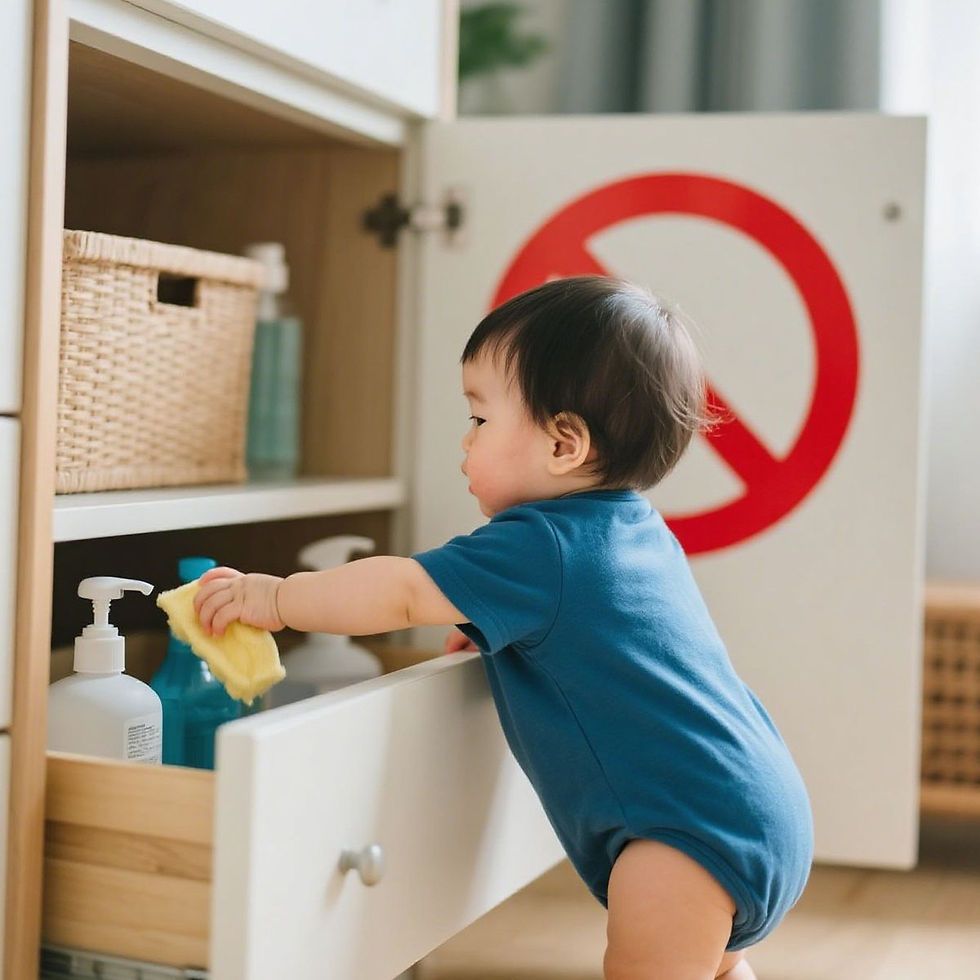Updated: Nov 14, 2025
Bringing your newborn home is one of life’s most rewarding moments. It’s also a time to make sure your home environment is as safe as possible. Babies grow and explore quickly, so preparing early can help prevent accidents and give you peace of mind.
Below are key home safety tips every new parent should follow.

Baby-Proofing Basics
Before your baby becomes mobile, take steps to baby-proof your living spaces:
Cover all unused electrical outlets.
Secure cabinets and drawers with safety latches.
Keep small objects, coins, and batteries out of reach.
Lock away cleaning products, medicines, and sharp tools.
A good rule of thumb: if it can fit through a toilet paper tube, it’s a choking hazard.
Safe Sleep Spaces
Your baby’s sleep area should be calm, simple, and safe:
Use a firm, flat mattress with a fitted sheet.
Avoid pillows, stuffed animals, bumper pads, and loose blankets.
Always place your baby on their back to sleep.
Following safe sleep guidelines recommended by The Lullaby Trust UK helps reduce the risk of Sudden Infant Death Syndrome (SIDS).
Fall Prevention
As your child begins to crawl and walk, falls become one of the most common household injuries. Reduce the risk with these steps:
Install safety gates at the top and bottom of stairs.
Use non-slip mats in bathrooms and kitchens.
Secure furniture that could tip over.
Never leave your baby unattended on changing tables, beds, or sofas.
Fire & Electrical Safety
Electrical and fire hazards can be easily overlooked in busy households. Make safety a routine:
Keep electrical cords and appliances out of reach.
Test smoke and carbon monoxide detectors monthly.
Replace detector batteries regularly.
Keep a fire extinguisher in an accessible area, such as the kitchen.
First Aid Essentials
Every household with young children should have a baby-friendly first aid kit. Include:
Adhesive bandages and antiseptic wipes
Digital thermometer
Infant-safe fever and pain medication
Tweezers and cotton swabs
Parents and caregivers should also learn Infant CPR and Basic First Aid - skills that could save a life in an emergency.
Want to make sure your home is fully prepared? 📋 Reach out to request your free Home Safety Checklist for New Parents.




